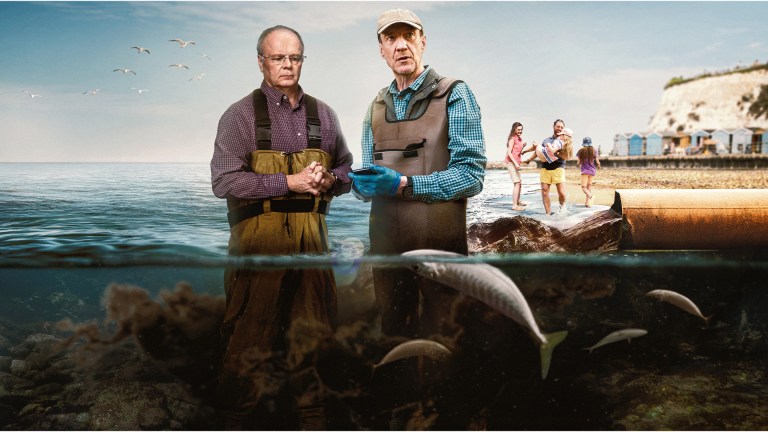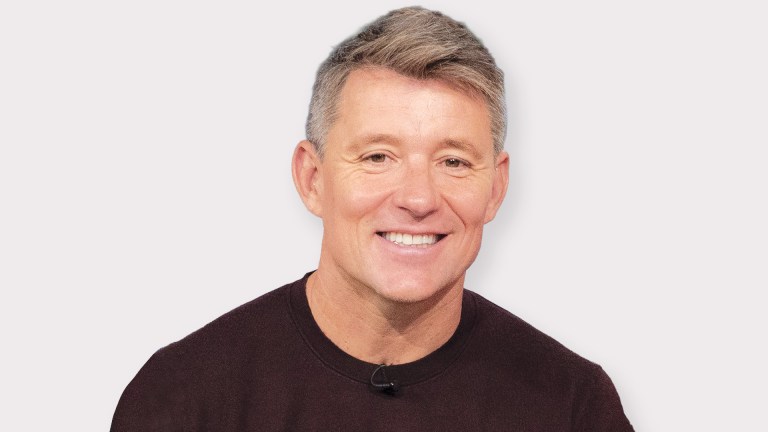Jed Mercurio is TV’s master of suspense. The creator of Line of Duty and Bodyguard has done more than anyone else to raise the heart rates of viewers in recent years.
Ahead of the breathless finale of series five of Line of Duty – which had our pulses racing faster than dying DI Dot Cottan (Craig Parkinson) can tap out a morse code message on his fingers to the detectives he’s recently betrayed – we caught up with Mercurio to ask how it feels to make television that unites the nation and what the future holds for AC-12’s heroes.
Beeeeeeeeeeeeeep.
The Big Issue: How does it feel when a show goes from TV series to national talking point?
Jed Mercurio: There is a collective sense of pride. Those of us who have been involved in Line of Duty since the beginning are all absolutely thrilled people are coming to the show and watching it and talking about it. We are thrilled with the reception to Line of Duty. And we were astounded and a bit bemused by the figures we got on Bodyguard. It does show that certain works are still capable of pulling in a big mainstream audience with classic linear viewing.
How do you get our heart rates pounding?
It is about setting up the stakes. So when the audience is watching the scene, they are consciously or subconsciously aware of the ways real jeopardy can enter the situation. That makes the audience invested in what is going to happen next.
The other part is the overall style of the series, which is that every now and then we deliver on the jeopardy. What that means is that the audience is never put in the position where they can write off something as manufactured or fake. They can’t say, “We know this character will be fine and come back next week”. That adds to the psychological landscape.

Like when Jessica Raine, star of Call The Midwife, joined the cast and promptly went out of the window?
We play with that. We created reverse signposting, putting in her drink problem and relationship with Steve Arnott – all things that appeared to have legs, which made her departure all the more unorthodox and surprising.
Does it surprise you that killing off a main character when the story demands rather than the schedule demands is controversial – the idea that people don’t only die in series finales?
It is controversial because it is unorthodox. There is a certain level of expectation that if a character is very prominent and played by a major star they will be there for a certain number of episodes. And also, that if they are to depart, it will be signposted. We don’t do that.
Was there a specific moment you realised Line of Duty had caught fire?
It is hard to pick out a single moment. For those of us involved it feels like a continuum. With the first series going out, there was a certain amount of trepidation because it was going out in one of the most packed sporting summers we have ever had – with the Olympics. One moment I remember is when series two, episode one went out and the overnight ratings were considerably lower. At that point we were concerned the series would vanish. But we were very grateful for the ratings picking up and series two becoming a very talked about piece of television. That really launched us.
Keeley Hawes adds a few million viewers to everything these days…
It is interesting the way people responded to Keeley’s performance in Line of Duty, doing a role so far removed from the work she had done before. It just showed her range as an actor. She does bring a kind of magic touch to a series, there is no denying that. Someone who has been a star for all her adult life has a certain kind of magnetism. We were banking on her making Lindsay Denton as interesting as possible.
Do you look at the theories online?
I certainly don’t follow when it is happening live. But the BBC publicity department do a round-up of the coverage and the online commentary. So I do get to see that and take an overview. I look up certain articles or follow the discussion if there is something I think is important. It is interesting as an academic exercise, seeing the way things are noticed. It gives us confidence to be able to say that this particular clue will be picked up. For example the misspelling [of definitely] this series. People were concerned it was too subtle. that the audience wouldn’t recognise it as a spelling mistake or would assume it was an error on the part of the production rather than intentional. I hope it has made it less likely that people will misspell that word in the future.
When did you come up with the overall arc – you can’t have known poor Jackie Laverty would be in a freezer for so long when you were writing series one?
It is an evolving process. If we choose not to close a particular story off, so we didn’t find Jackie Laverty’s body for example, then it is an asset we can use in the future. But the fine detail of how and why and when is not planned years in advance.
Does success allow you to choose the best actors in the business?
Anna Maxwell Martin is definitely one of the best in the business. She is a delight to work with. We wanted someone with a more subtle, surprising, more elliptical approach to interrogation. It is a feature of our position that we are very grateful for. We get interest from actors that a few years ago might have been out of reach. I spoke to him very early on when we only had a couple of finished scripts. And we were so thrilled that Stephen Graham was interested. It was incredibly flattering that someone with so many offers on the table was willing to join the cast.
Are you going to extend Line of Duty beyond next year’s sixth series?
When the point comes that we only have one more series to do, then that will be the last one. We can’t take the risk that we don’t tie everything up and we don’t get recommissioned and the loyal fans are left hanging. Currently, the only series remaining is series six but we are in talks with the BBC about the possibility of a series seven. People’s tastes change quickly. We will have to study the audience data we get. We know we have a finite lifespan.
What do you watch on TV to unwind?
I tend to watch sport or comedy. Like a lot of people, I watch things that are escapist. So if I am watching football or the conclusion of a golf tournament, those things feel like a departure from my day job.
The last day of a major golf tournament ratchets the tension, raises the heartrate – a bit like your shows…
I think it is much more influential on my performance as a golfer than as a writer of drama! But I’m playing ok at the moment. Not bad at all. I’m quite pleased with some recent rounds…
Line of Duty series 1-5 is out now on DVD









